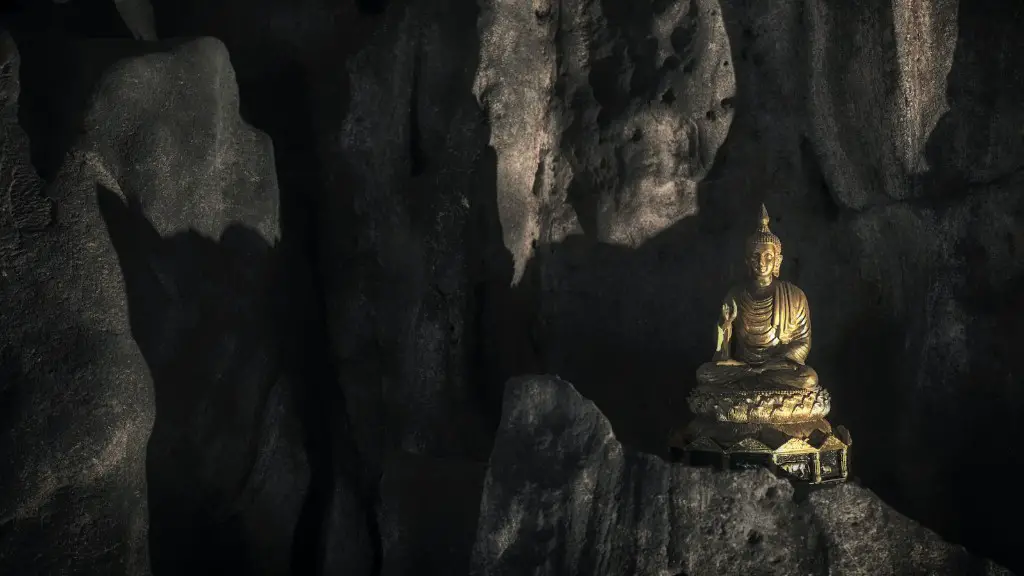There is no question that Jesus was a great moral teacher. But where did he learn his morality from? Some people believe that Jesus learned from Buddhism, as it was a major influence in the region during his lifetime. After all, both faiths teach about love, compassion, and non-violence. And both Buddha and Jesus were born into wealthy families but chose to live simple lives.
No, Jesus did not learn Buddhism.
Did Jesus and Buddha meet?
It is interesting to note that although modern parallels have been drawn between the teachings of Jesus and Buddha, these comparisons only emerged after missionary contacts in the 19th century. This suggests that there is no historically reliable evidence of contacts between Buddhism and Jesus.
Buddhism is a religion that began in India. Christianity is a religion that began in Palestine. There is no historical evidence that Buddhism had any influence on the development of Christianity.
Did Buddha and Jesus live at the same time
The book “Jesus and Buddha: The Parallel Sayings” by Marcus Borg raises the fascinating question of how could Jesus, living 500 years after Buddha and 3,000 miles away, embody teachings so similar in nature to his predecessor. Borg said some historians believe that Buddhist principles had filtered through the Roman Empire by the time of Jesus.
Jesus was a Jew and was born of a Jewish mother. He grew up in Galilee, a Jewish part of the world. All of his friends, associates, disciples, were Jews. He regularly worshipped in Jewish communal worship, what we call synagogues.
Can you believe in god as a Buddhist?
Buddhists do not believe in any kind of deity or god, although there are supernatural figures who can help or hinder people on the path towards enlightenment. The goal of Buddhism is to achieve Nirvana, or a state of blissful peace. In order to reach Nirvana, Buddhists must follow the Eightfold Path, which includes right understanding, right thought, right speech, right action, right livelihood, right effort, right mindfulness, and right concentration.
Buddhism is often seen as a compatible with science and reason, or even as a kind of science. This is because Buddhism often emphasizes investigation and understanding of the mind and the world around us. Additionally, Buddhism upholds values such as compassion and kindness, which are also important to many scientists.
Which came first Christianity or Buddhism?
Christianity is a religion founded by Jesus Christ. It is based on the belief in one God who created the world and all that is in it. Christians believe in the Bible as the authoritative source of religious teachings. The Bible contains the story of God’s interaction with humanity from creation to the present day. Christians also believe in the principle of salvation, which is the belief that God offers forgiveness and eternal life to those who repent of their sins and accept Jesus Christ as their savior.
Buddhism is a religion founded by Prince Siddhartha Gautama. It is based on the belief in the Four Noble Truths, which state that life is suffering, that suffering is caused by desire, that suffering can be ended by giving up desire, and that the path to ending suffering is the Eightfold Path. Buddhism also teaches that all things are interconnected, and that everyone has the potential to achieve enlightenment.
Biblical Unitarians believe that the Bible teaches that God the Father is one singular being, and that Jesus Christ is a distinct being, his son, but not divine. They hold that the Bible is the authoritative source of truth about God and that it teaches that there is only one God. They believe that Jesus was a human being who was chosen by God to be his son, and that he was born of a virgin. They believe that Jesus died on the cross to save humanity from sin, and that he rose from the dead and ascended into heaven.
What is Jesus’s full name
Jesus’ name in Hebrew was “Yeshua” which translates to English as Joshua. This is a significant name because it represents the savior of the people. In the Old Testament, Joshua was the one who led the Israelites into the Promised Land after Moses died. He was a great leader and warrior who fought for the people. In the same way, Jesus is our great leader and savior. He fought for our salvation on the cross and conquered death. His name is a powerful reminder that we can always trust in him.
Aramaic was the primary language of Jesus Christ and is still spoken by some Christians today. Aramaic is a Semitic language, related to Hebrew and Arabic, and was the lingua franca of much of the Middle East during the time of Christ. Aramaic has been declining in use over the centuries, but has experienced a resurgence in recent years due to the interest of Christians in reconnecting with their roots.
Is A Buddhist an atheist?
In both Buddhism and Jainism, the denial of the existence of a creator god is central to their respective philosophies. For Buddhists, this rejection of theism is based on the belief that any such god would be a needless distraction from the goal of spiritual liberation. Similarly, Jain philosophers argue that belief in an eternal god is ultimately a hindrance to achieving enlightenment. In both traditions, then, atheism is seen as a positive force that helps practitioners focus on the things that truly matter.
Buddhist teachings state that there are divine beings called devas (sometimes translated as ‘gods’) and other Buddhist deities, heavens, and rebirths in its doctrine of saṃsāra, or cyclical rebirth. In addition, the Buddha is often referred to as a ‘god’ in the Pali Canon, and some Mahayana sutras refer to him as a ‘buddha-god’. However, the Buddha himself rejected the notion of a creator god, and Buddhist teachings do not promote the worship of any deities.
Do Buddhists believe in afterlife
Death is not viewed as an end by Buddhists, but rather as a natural part of the continuous cycle of life, death and rebirth. Buddhist teachings offer the opportunity for liberation from this cycle through the attainment of Nirvana.
There could be a number of reasons why someone might want to attribute this statement to Einstein. Perhaps they feel that he is a figure who is respected by both religious and non-religious people, and that his endorsement of Buddhism would therefore be a valuable asset to the religion. Maybe they simply admire Einstein and feel that he embodies the Buddhist ideal of a wise and intelligent person.
In any case, it’s an interesting statement, and one that suggests that Buddhism is a religion that is compatible with modern scientific thought. This is certainly true to some extent, as the two fields of inquiry often ask different types of questions and focus on different aspects of reality. However, it’s also worth noting that Buddhism has its own unique cosmology and concepts that don’t always fit neatly into the scientific view of the world. So while Buddhism may be more compatible with science than some other religions, it’s still not a perfect fit.
Which religion is peaceful?
Buddhism is a religion of peace and compassion. It teaches that all beings are equal and deserve to be treated with kindness and respect. Buddha himself was a peaceful man who preached non-violence and love for all. Buddhism is a religion that is based on the philosophies of Buddha and aims to help all beings achieve Enlightenment.
There are a number of beliefs that Islam shares with Christianity. They both believe in judgment, heaven, hell, spirits, angels, and a future resurrection. Muslims also acknowledge Jesus as the greatest prophet and venerate him as a saint.
Conclusion
No, Jesus did not learn Buddhism.
There is no evidence that Jesus Christ ever knew about or studied Buddhism. While there are some similarities between the two religions, they are ultimately quite different. Buddhism is a religion that emphasizes personal spiritual development, while Christianity is focused on worshiping God. Jesus was a Jewish teacher who preached about love, forgiveness, and redemption, which are all central tenets of Christianity. In conclusion, it is unlikely that Jesus Christ learned Buddhism.


